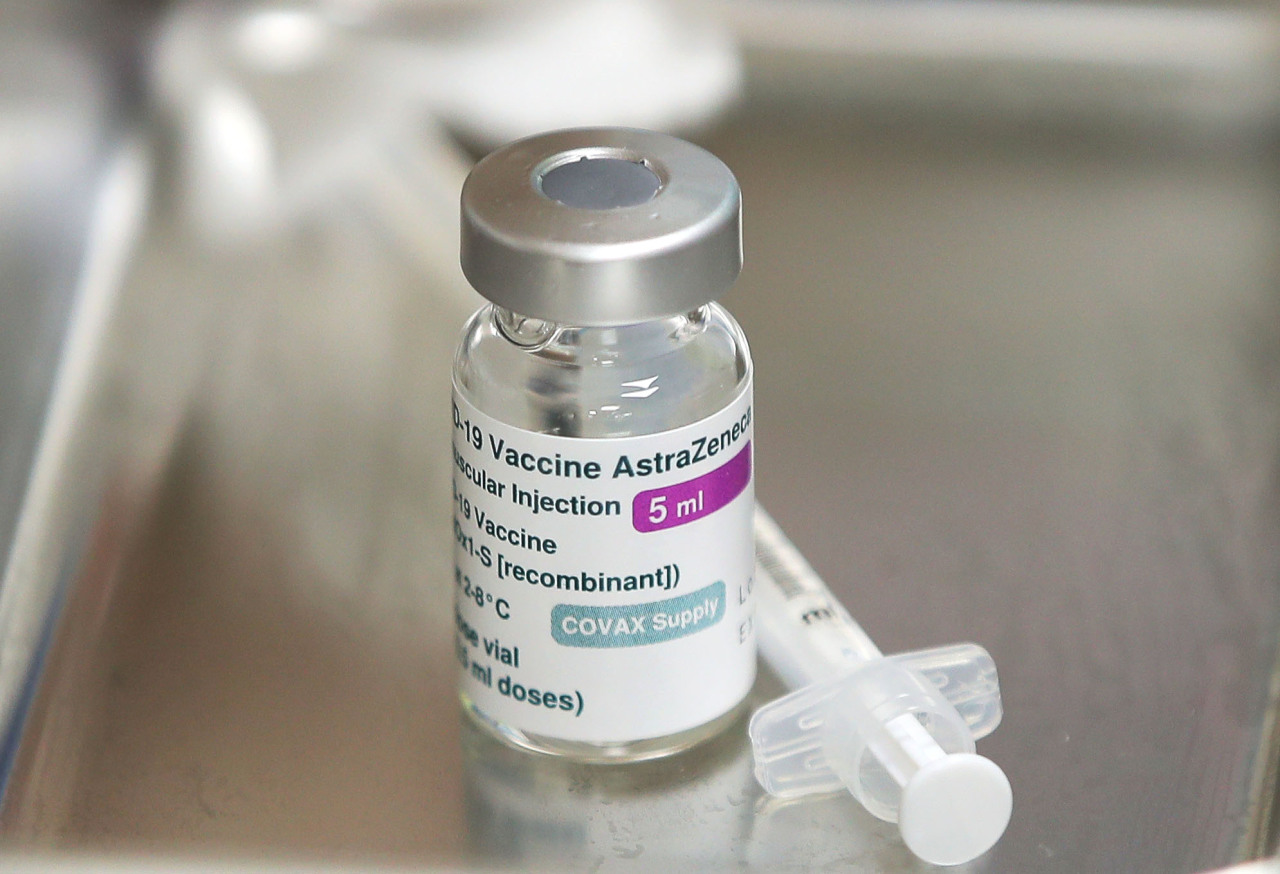 |
Photo shows a vial of AstraZeneca`s COVID-19 vaccine (Yonhap) |
Korea has yet to confirm a case of rare blood clots in people who received AstraZeneca’s COVID-19 vaccine, the Korea Disease Control and Prevention Agency said in Tuesday’s press briefing.
Park Young-joon, the agency’s head of case management team, said in response to The Korea Herald’s question that none of the post-vaccine clotting cases identified so far were accompanied by low platelet levels. The specific kind of blood clots -- termed thrombosis with thrombocytopenia syndrome, or TTS -- that is listed as a side effect of the AstraZeneca vaccine is characterized by a drop in platelet counts, he explained.
The latest fatal blood-clotting event following AstraZeneca vaccination, involving a Gwangju police officer in his 50s, was “not believed to be to a case of TTS, either,” he said.
The officer died Sunday evening, 16 days since receiving his first dose of the vaccine on April 30, according to the Gwangju metropolitan office.
The city said he was hospitalized with a severe chest pain on May 12, and then had to be transferred to a bigger hospital where he underwent a stent placement in the heart. He died four days after the procedure in the hospital’s intensive care unit.
Post-mortem examinations were underway to determine an association between the vaccine and his death, the city said.
In a phone call that took place after the briefing, Park said he did not know the type or the location of the blood clots that affected the deceased officer.
He added that there have been “several more cases” of blood clots discovered in AstraZeneca vaccine recipients who died. “But none of them fit the descriptions of the vaccine-induced syndrome,” he said.
Asked how many such cases there have been, he said the agency was not keeping a tally of people who developed blood clots, or those who died with blood clots after AstraZeneca vaccination.
Meanwhile, the Ministry of Health and Welfare said it would be compensating six people who suffered severe side effects through the national vaccine injury compensation program that launched Monday. All six were given the AstraZeneca vaccine.
Two of them were diagnosed with a nerve-degenerating disorder called Guillain-Barre syndrome. One came down with acute disseminated encephalomyelitis, an autoimmune disorder that causes inflammation in the brain and spinal cord; one with systemic inflammatory response syndrome which causes multiple organ dysfunctions; one with acute myocarditis or heart inflammation; and one with deep vein thrombosis, a type of blood-clotting disorder.
Other details apart from their diagnoses could not be revealed to protect their privacy, the ministry said.
The ministry said its investigations revealed none of these cases were caused by the vaccine. Still, each would be compensated with up to 10 million won ($8,831) for their injuries under the program.
But the compensation will unlikely be able to cover much of the exorbitant medical costs incurred by some.
Medical bills of a nursing assistant who suffered a paralysis in all four limbs following an AstraZeneca vaccination amounted to around 4 million won a week, according to an April 20 petition filed by her family. She was diagnosed with acute disseminated encephalomyelitis.
In a response to the petition, the Korea Disease Control and Prevention Agency chief Jeong Eun-kyeong said Tuesday that the agency “plans to expand coverages for potential vaccine injuries even in cases where cause-and-effect relationship cannot be established.”
By Kim Arin (
arin@heraldcorp.com)








